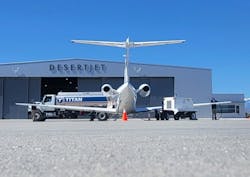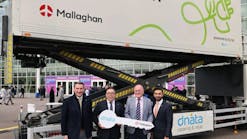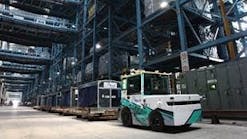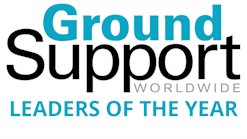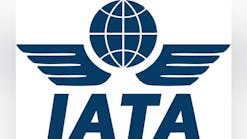Desert Jet Partners with TITAN Aviation Fuels to Offer Sustainable Aviation Fuel (SAF) at its Jacqueline Cochran Regional Airport (KTRM) FBO
Desert Jet, the full-service business aviation company in Greater Palm Springs, California, announces its latest sustainability initiative. The company has partnered with TITAN Aviation Fuels to establish the supply of Sustainable Aviation Fuel (SAF) at its flagship FBO, Desert Jet Center at KTRM, including using SAF for its charter aircraft fleet.
The partnership is part of Desert Jet's commitment to sustainability and reducing its carbon footprint.
With the addition of SAF at its FBO, Desert Jet is providing its clients with a more sustainable option for their air travel needs while contributing to the aviation industry's greener future.
The SAF, supplied by TITAN Aviation Fuels and produced by World Energy, is a low-carbon and eco-friendly alternative to traditional Jet-A fuel. It is made from agricultural waste and residues converted into a renewable fuel source that can reduce carbon emissions significantly compared to fossil-based jet fuel.
The Roundtable on Sustainable Biomaterials certifies that the fuel meets the same safety and
performance standards as conventional Jet-A fuel and can be used in existing aircraft without requiring any modifications.
Mike Allen, EVP of Titan Aviation Fuels, said, “We at Titan Fuels look forward to working with Desert Jet to support their SAF initiative by providing a source for their current and future sustainable fuel needs.”
Jared Fox, CEO of Desert Jet, expressed his enthusiasm: "We are delighted to provide an option for aircraftmanagement clients and FBO customers who desire to use a renewable alternative fuel source for their aircraft through our Desert Jet Center FBO. Offering SAF to our clients is a significant milestone for us as we continue to lead the way in sustainable aviation practices."
Desert Jet's commitment to sustainability extends beyond adding SAF at its FBO and charter flights. Its partnership and sustainability strategy plays a vital role in promoting greater awareness and adoption of SAF in the aviation industry. By doing so, it is helping the industry achieve its ambitious net zero by 2050 goal.
